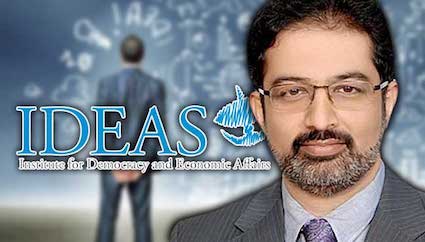Cyberjaya a failure, think tank study finds

It its report on Cyberjaya, IDEAS, which compared it with Silicon Valley and other hubs and looked at its stated objectives and the role of government, says failure may have been built into its design.
(FMT) – Think tank IDEAS says Cyberjaya has failed in its objective of creating a world-leading IT entrepreneurial hub.
This is because, it says in a report, in creating Cyberjaya the government “tried to create a flourishing hub from scratch, when the evidence suggests the most successful hubs emerge naturally with the government stepping in later to support development, including by providing demand for new technology”.
The report titled “Create or Nurture? Lessons from Cyberjaya: Malaysia’s Promised Silicon Valley” evaluates the success of Cyberjaya, comparing it with other hubs such as the famous Silicon Valley.
The report says that although Malaysia has enjoyed steady and impressive rise in ICT exports, “most of this rise may not be attributed to Cyberjaya”.
Ali Salman, CEO of IDEAS and author of the report said: “Cyberjaya was a grand ambition that has ultimately fallen short. Whilst it has created jobs and investment it has not become the world leading innovation hub that was envisioned.
“The key reason is that the government cannot create hubs from scratch, it needs to support what emerges naturally. The new government should learn lessons from this experience and pursue policies that allow the enormous potential of Malaysia’s private sector to flourish, rather than trying to manage it directly.”
Silicon Valley, in San Francisco, California, is home to many start-up and global technology companies including Apple, Facebook and Google.
Cyberjaya took shape in 1997 on 2,800 hectares of mostly undeveloped land adjacent to Putrajaya. It was the brainchild of Dr Mahathir Mohamad, who was prime minister then, too.
Cyberjaya was to be the core of theMultimedia Super Corridor and was envisaged as a place which “will be a designated zone where technology entrepreneurs and global multinationals enjoy attractive tax breaks, access to world-class human capital and infrastructure, at developing nation costs”. It was to be a hot-bed of ideas.
The report finds that Cyberjaya is in sharp contrast to California’s Silicon Valley in terms of the role of central planning and that “central planning cannot create successful industrial clusters, but an efficient industrial policy can certainly help in nurturing a cluster”.
It observes: “An organic process of combining market demand with the supply of skilled labour which is spatially concentrated, brought together through a sophisticated entrepreneurial process is critical to success. This cannot be replaced with a top-down government directive or a vision.
“That Cyberjaya was introduced as a grand and ambitious vision may have introduced failure in its design.
“We would like to qualify the use of the word ‘failure’ which may seem a harsh judgement, given the number of MSC companies and presence of MNCs. It is not denied that Cyberjaya has helped in placing Malaysia as a player in global outsourcing operations, but obviously evaluation is always done by comparison with the announced objectives.”
It concedes that the fact that Cyberjaya has become host to hundreds of companies and some universities, may, at some point in time, help in creating new places of innovation for the industry.
The report notes that a critical mass of knowledge workers is needed in setting up a hub like Cyberjaya and this is available. However, it is also crucial to ensure cross pollination of their ideas through creation of social capital and this is missing.
“The spark of entrepreneurship and risk-taking, which has defined Silicon Valley since the sixties, is not a common sight in the Malaysian Silicon Valley. There is a lot of government everywhere in the valley, both in the form of urban design and in the form of companies, but there is not much of a risk-taking private venture capital and entrepreneurial culture.”
The report ends by drawing an analogy between setting up a hub such as Cyberjaya and baking a cake to explain the role of government.
“A cake has many ingredients, such as flour, chocolate, sugar, milk, and eggs. While these are prominent ones and occupy our main attention while baking a cake, a very crucial, yet hidden ingredient is the raising agent – which in this case is baking powder or soda.
“Without this agent, no cake can be baked. Consider that for a one pound cake, all you need is hardly one spoon of raising agent. Then again, we can have different types of raising agent, such as baking soda and baking powder just like you can have different forms of a government with the same outcome.
“One special thing to note in this analogy is that if you add strictly more than one spoon in a one pound cake, the latter will get spoiled. No cake is baked by adding more quantity of baking soda – thus small is beautiful aptly applies here.
“Similarly, no economy can function with zero government (read without a spoon of the raising agent) or with too much government. It gets rotten, just like how a big government ultimately leads to rents and corruption.
“Like raising agent, the government’s role has to be hidden and judged just right. You don’t see the raising agent in a cake, and you don’t taste it either. The same is true of good government.”

